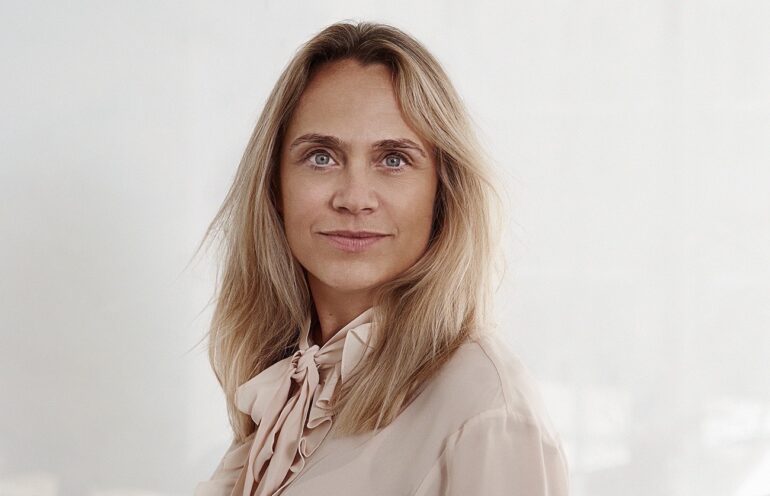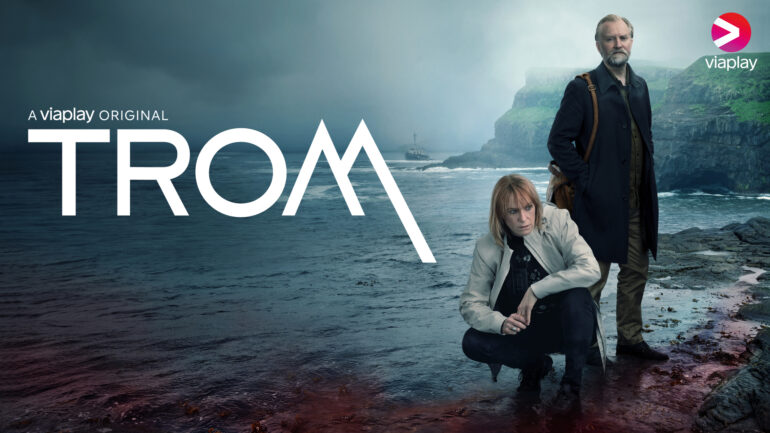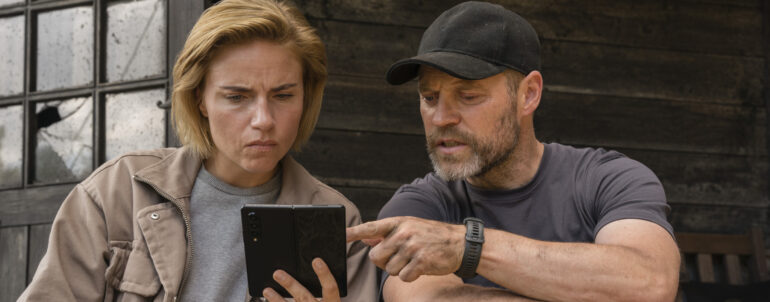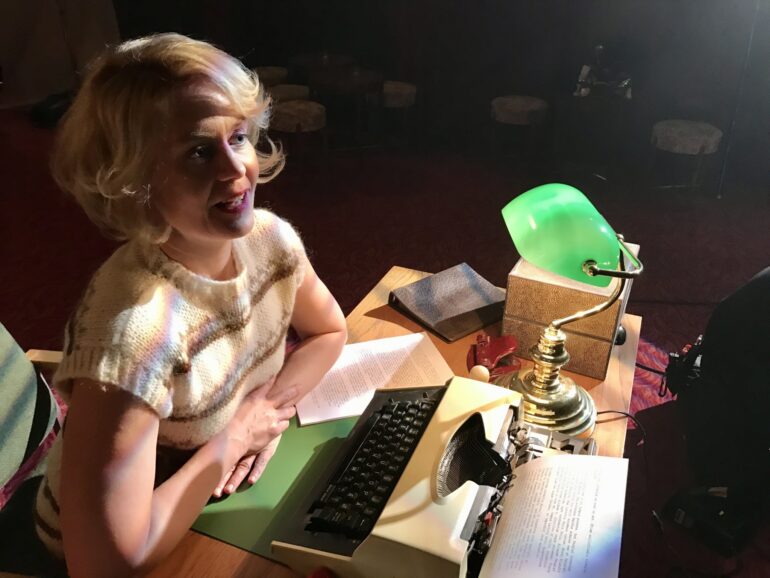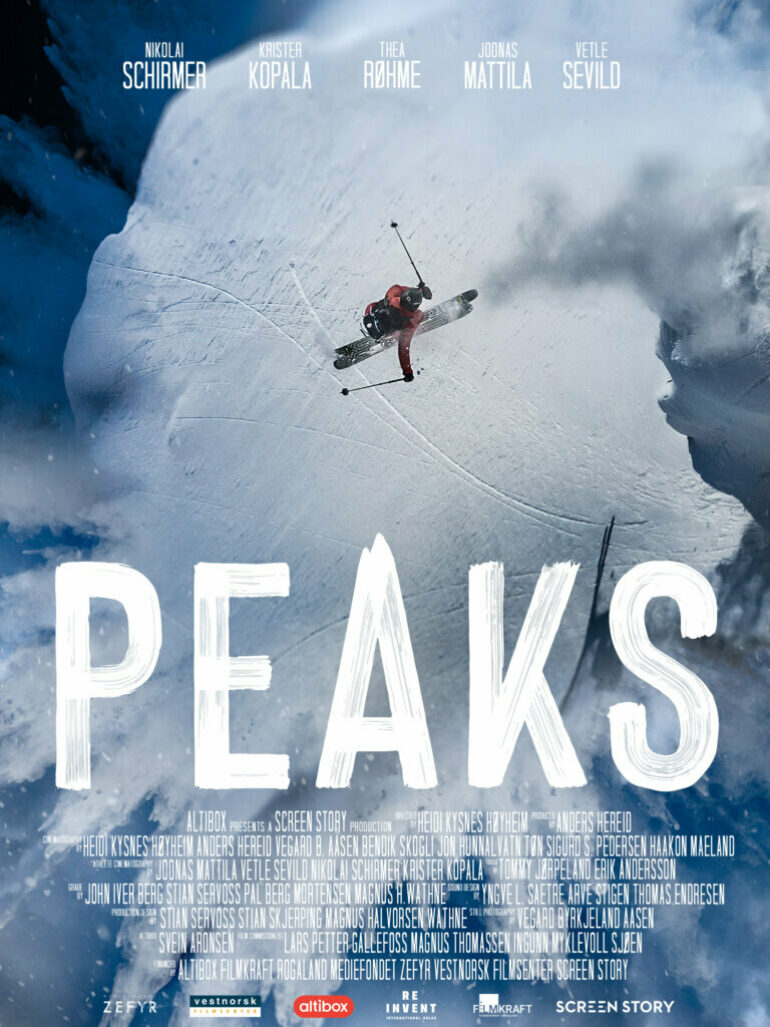Written by: Annika Pham
17.04.23
EXCLUSIVE: In this interview, the veteran Danish executive shares her insights on the art of selling, financing/producing Nordic series and films and the state of the market.
In five years, Copenhagen-based REinvent Studios has become the top partner for Nordic producers trying to raise financing for their scripted content on the international market, and the exclusive international sales rep of SF Studios’ films and series.
Thanks to a €26 million guarantee facility from the European Investment Fund (EIF) secured in 2021, the sales, financing and production outfit is in a unique position to raise gap financing in a volatile and highly competitive market.
As REinvent has a strong presence both at Canneseries - with Power Play and Out of Touch in competition - and at MIPTV with a slate of more than 20 premium series and films for sale, we spoke to Rikke Ennis about her priorities, the challenges on the market and mid-term strategy for the future.
When you launched REinvent 5 years ago, your vision was to focus on development, co-financing and global sales of Nordic content - predominantly drama series. Today, how has the focus of your company shifted to meet your customers' needs and drastic changes on the market?
Rikke Ennis: Yes we started with a packaging business saying: why don’t we help producers finance and package films and series? With our knowledge in sales, the network we have, that makes sense. What we fast found out, is that if there are too many pilots in the cockpit, it’s hard to say who has the mandate to which decision. It’s not good be too many cooks in the kitchen.
We also found it very interesting to be the main producer on some titles like the series TROM and BOYS. When you’re in control, it’s a big responsibility but you can take all decisions. We want to continue doing this with 2-3 projects a year.
Then a new trend on the market is that streamers aren’t fully financing the way they used to. Instead of global deals, they tend to take local territories, leaving a gap for international sales. This is a great new opportunity for us to look for co-production models, where we can invest some equity, and help producers put their projects together, probably more financially than creatively.
So going forward, we will remain flexible and evaluate all projects on a case-by-case basis. Some projects might need a small gap, others more financing, where we will look into co-producing selectively. Then we will cherry-pick projects that we will produce. It’s always interesting to look for IP ownership.
It seems like indie distributors like yourself are back in the front row, playing a key role in split-right models with streamers...
RE: Absolutely. But what we do need to find out, is how much is left financing-wise. The gap can’t be too big. At least 80% of the financing needs to be closed already with a streamer or more, as there are limits to what can be closed with tax rebates, regional funds and an MG from an international distributor. Then of course, we need to find a balance, where the streamers are paying for what they’re buying and not less.
In order to have a sustainable business, the producers need to earn money so that they can invest in more projects. I personally think too much risk is on the shoulders of producers. Great producers are a rare species and we all want them to survive in this challenging market.
Could you give examples of recent projects with streamers where you had to close the gap on the international market?
RE: It's very new - it’s only since the last 3-4 months that we’ve had on our table, streaming projects in consideration, where we have to figure out how to help producers fill the gaps. These are too big for an MG, but we could tap into some additional financing and think of it as equity finance, act as a co-producer, use our European Investment Fund (EIF) and so forth. I can’t mention those projects yet.
You did have a lot of Viaplay shows when they were only covering the Nordics…
RE: Yes. They are actually going back to that. This is interesting. They used to take the Nordics, the Baltics only. Then they included Poland, US, UK, Benelux, and even more countries in their deals. Now they are rolling back and saying-we’re focusing on our core territories and the rest is a bit up for grabs. It gives more opportunities for companies like ours.
With escalating costs for high-end TV drama, competition for talent and crew, and rising inflation, how do you work with producers to help them face these challenges?
RE: This is a good question. It is a huge challenge with prices going up, especially in Denmark, where it’s almost impossible to get a production together these days. Creatives are expensive, we do have inflation, sustainability that we have to think about, which ups the costs, then the EU streaming tax coming up. All that leads to budgets going up 15-20%.
The problem is that these inflated budgets don’t match reality. There is less money available out there. Streamers are investing less, but expecting the same high production value and ambition, and from our end, we also have to be more careful. We feel buyers aren’t as active, cherry-picking projects. It’s more about what they need than what is nice to have.
So I guess you’re having market reality checks with producers …
RE: Yes. And we’re trying to have dialogues with them as early as possible- hopefully from pitch/bible stage. Many producers only do a show every 2-3 years. They don’t notice the changes on the market. We can tell very fast what is possible to raise on the international market or from the Nordics. That can save producers 3-4 years in trying to raise finance for a show that would never see the light of day because it is too expensive.
It's important for producers to start thinking in pragmatic business terms, being aware of what is the market cap and what is realistically achievable. Perhaps they’d rather produce a film or a TV series for DKK 35-40 million than waiting 3-4 years to finance a project for DKK 70 million. And obviously, this needs to be reflected in the main idea and the scripts from the beginning.
Regarding financing, what has been the leverage effect of the €26 million guarantee loan from the European Investment Fund that you secured in 2021 and can it be renewed?
RE: When we got the contract with EIF, we felt like we had won a lottery ticket that would help us lift the Nordic film and TV industry. All we needed was a bank or two, to come on board and really lend us the money with the full EIF guarantee behind us. But what we have seen is rather shocking. IP has literally zero value for banks who don’t understand our business. So we've had to adapt our strategy and turn to our own connections with private investors. Luckily, we have a very good financing system behind us, so we are able to invest in 8-10, hopefully going up to 12- big series a year, where we put an MG, using the EIF for most of those productions.
For example?
RE: NRK’s Afterglow, Power Play, TV2 Denmark’s upcoming Oxen, C More/TV4’s Evil. These are projects where we were able to invest a bit more than we normally would have with an MG, thanks to the EIF.
You have asked if we can extend this facility, and yes, we can. We would need their approval but it is possible. We have a great collaboration. They are wonderful partners.
How much have you spent so far?
RE: I can’t say, but let me put it this way: we still have money left. That means we’re still heavily investing in projects.
You represent scripted content from all five Nordic nations. Do you feel some territories are more creative/daring than others and if so which ones?
RE: Finland is producing heavily. We have a great collaboration with ReelMedia [Peacemaker], Fire Monkey [Seconds, Deception] and are in constant talks with various producers. Both YLE and MTV are great partners in Finland.
I wish we had more projects from Sweden. We have work to do there. They have great crime shows, but some are produced by companies that are part of big indie groups. That said, we have a great relationship with SVT and are in constant talks about new projects. The same goes with C-more/TV4.
In Norway we have an amazing collaboration with NRK and TV2.
In Denmark, there is a huge lack of projects as I mentioned earlier. TV2 Denmark is the player - besides DR - really commissioning right now. We’re looking forward to launching their flagship project Oxen [created by Mai Brostrøm and Peter Thorsboe].
When did you come on board the two Norwegian shows in competition at Canneseries (Power Play and Out of Touch)?
RE: Both Helene [Aurø, sales and marketing director] and I have spent decades evaluating projects, and with that comes a gut feeling when a project is special and we just need to go for it. This is especially interesting when it is not crime and thrillers which are normally the bestsellers. Sometimes you read a script and there is a take on the story that you have not seen before - and then you know that you have to go for it. This is how it was with both projects.
You’ve also recently picked up the event Icelandic biopic Vigdís from Blackport’s creators at Vesturport…
RE: Absolutely. And we’re so proud of that. It’s an empowering series that shows it’s possible to be a single mother, a strong woman and a head of state. It is a mind-blowing project and we have big expectations with it. Iceland is such a small nation and they get things done! Their local broadcasters are restricted to what they can offer, but they are bold, ambitious and I love that. The producers are very good at networking, and creatives wear different hats-producer, director, actor…I see the same thing at the Faroe Islands. They aren’t there yet of course, but they will and I find this so inspiring.
On your MIPTV slate you have a doc series - Peaks from NRK/Altibox about Youtuber and skiing legend Nikolai Schirmer. Is this part of a new strategy?
RE: This is a test-case, and we look forward to seeing how that goes. However true crime documentary series are definitely interesting.
What is your core editorial focus today?
RE: Our focus area is the big public service TV series-crime thrillers, but also character-driven dramas, from anywhere in the Nordics-like Vigdís, Power Play. Then we have smaller budget YA series that we usually pick up once completed, and take to the players around the world.
How attentive are you to diversity/representation across your slate?
RE: REinvent has a majority of women in the company. Not because we chose it to be like that, but the women chosen were simply the best for the job. We are proud of that. However, as a woman I would always say-let the best “person” win.
We have many nationalities in REinvent and I love that. It is inspiring to look beyond our own Danish values and learn from an international perspective.
In terms of projects, I think it is a good thing that the market is aware of diversity. There is a need to reflect society as it is, and we see that this comes organically and naturally in the discussions we have with both producers and broadcasters/streamers.
You mentioned a while ago that you might widen your slate to English-language content. Is this something you are still considering?
RE: We do have Nordic projects partly in English-language. We are curious about content originating from Ireland, Scotland, where the storytelling is amazing and where they don’t have so much local funding.
So are you actively looking into acquiring non-Nordic content?
RE: It’s not an explicit focus, but we are curious to explore the possibilities.
On the film side, you have an exclusivity deal with SF Studios, but they have been doing quite a few projects with Netflix recently. Are you looking into picking up quality features from other producers? You do have a great track-record in the arthouse sector from the time you were running TrustNordisk…
RE: We would have loved to have these projects for international sales but sometimes financing requires other solutions. Occasionally, we have some projects outside our deal with SF, but otherwise it’s fully exclusive.”
Ideally, where would you like to be three years from now with REinvent?
RE: Right now, we’re in a very good place with our company. We’re not a start-up, we’re well founded with good people on board, and we have amazing projects and relationships in the industry.
What I would like in a few years is to be even more solid financially, to stay independent. This is crucial to be able to take fast investment decisions. For now, it’s just me, Helene and our CFO Frederik Nelsson, evaluative the projects, then submitting them to our board.
I would like to stay that way in the future, keep the low overheads and flat structure that we have. We will keep on trying to improve ourselves, to be the best partners to producers. As I said earlier, I know they are facing very tough times, and they are perhaps the biggest talents we have in the business.
